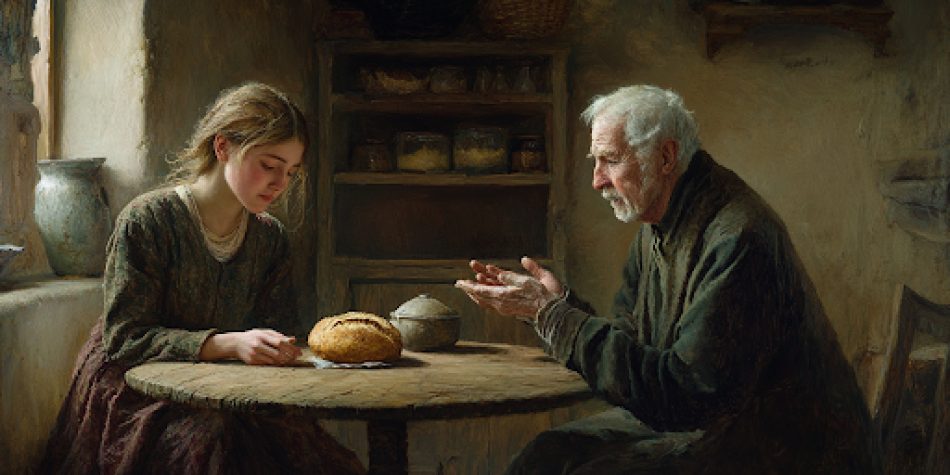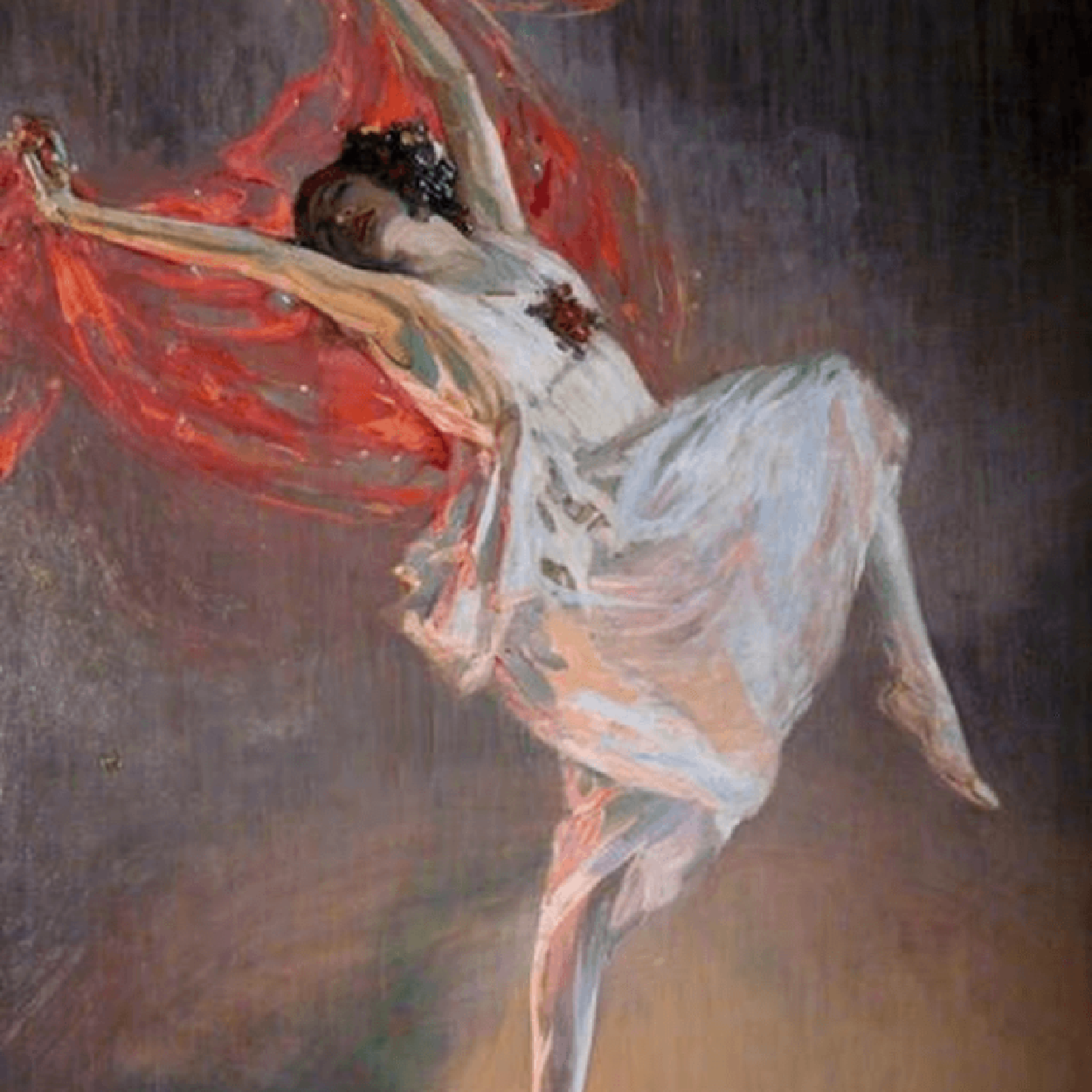There’s a comedian I enjoy named Theo Von. In his comedy, he plays this character who’s, let’s say, a little simple. He comes across as very credulous—a little ignorant. Nobody is really sure if it’s a character he’s playing or if that’s genuinely who he is.
Anyway, in one of his routines, he jokes about meeting astronaut Buzz Aldrin. He says:
Here’s one thing that strikes me about the moon landing. For one, I met Buzz Aldrin. And I looked into his eyes. And he didn’t look—to me—it didn’t look like he had been to the moon. And I’m not saying that everybody got that special lunar glow in their eye— everybody got that galactic twinkle in one of their [eye] balls, if they’ve been to the moon, but he didn’t have it! For me.
It’s funny because, for some reason, we expect that someone who’s experienced something so profound, like walking on the moon, should look different—somehow marked by their experience.
We humans have a strong tendency to believe that we can read someone’s character by looking at them. Historically, people even built whole theories around this, like phrenology—the belief that you could tell a person’s propensity for criminality or virtue by the shape of their skull. Obviously, we now know how flawed and even damaging those ideas were, often entangled with racism and prejudice. However, the instinct remains: we like to think that we can “see” what a person is really like just by looking at them. Acts of sacrifice become powerful witnesses of our faith—not just to others, but to ourselves.
In other traditions, holy men and women sometimes look very distinct. We can think of the yogis of India or Eastern Orthodox priests with their flowing robes and uncut beards. In our own tradition, however, people of faith often look just like everyone else.
The philosopher Soren Kierkegaard made a similar observation about what he called the “knight of faith.” He said, “The instant I first lay eyes on [the Knight of Faith], I set him apart at once; I jump back, clap my hands, and say half aloud, ‘Good Lord, is this the man, Is this really the one—he looks just like a tax collector!’” In other words, if you were to meet one of these remarkable people, they would look perfectly ordinary, nothing special about them whatsoever. Nothing in their outward appearance would reveal the profound faith within.
And so, Knights of Faith go through life looking like tax collectors, middle managers, teachers, ice cream scoopers, interior decorators, Subway sandwich artists, plumbers, lawyers—quietly performing acts of faith day in and day out with little fanfare.
So, faith is largely invisible and interior. We are in no position to judge the faith of other people. The real paradox, though, is that our own faith can sometimes remain hidden to us. We might think that we can discern our own faith better than anyone else—because we are, obviously, closer to ourselves than anyone else. But the insights of modern psychology suggest that we are often mysteries to ourselves.
At least since Freud in the early 20th century, we’ve known that human beings are extremely adept at deceiving themselves. We have elaborate psychological defense mechanisms set up to protect our ego. When we construct our sense of self, we often give selective attention to the evidence at hand—overemphasizing evidence that suggests we are heroic and noble and ignoring evidence that suggests we’re wily rascals. For these reasons, we actually don’t know ourselves very well.
In light of this, perhaps our own faith can be difficult to assess. This is, I think, where sacrifice and tangible acts of faith can be particularly important. Acts of sacrifice become powerful witnesses of our faith—not just to others, but to ourselves. When we’re willing to act on our beliefs, to give something up, that sacrifice stands as evidence of the health of our faith.
You cannot talk about sacrifice without referencing Abraham and Isaac. God asks Abraham to sacrifice his son, Isaac. Was this to test Abraham’s faith, as though God didn’t already know what Abraham was capable of? Or was it so that Abraham could come to understand his own faith more deeply, as though looking in a mirror? It seems to me likely that God already knew the quality of Abraham’s faith. But did Abraham know the quality of his own faith? I imagine he learned a lot about himself in the plodding, three-day journey to the top of Mount Moriah.
Now, this Abraham story is one of the trickiest and, frankly, most unsettling in all of scripture. In fact, Kierkegaard wrote an entire book about Abraham and his sacrifice of Isaac called Fear and Trembling. Instead of writing under his own name, however, Kierkegaard writes under a pseudonym, Johannes de Silento, or Johan the Silent. In the book, Johannes-Kierkegaard admits to not being able to understand Abraham—he is “silent” in the face of Abraham’s staggering faith, and “silent” in the face of God’s terrible requirements. True faith isn’t easy or comfortable—it often demands something profound of us.
Kierkegaard lived in Denmark in the 19th century, at a time when everyone was Christian, and a member of the state church, baptized as a baby as a matter of course. But he believed that this kind of de facto Christianity—what we might call cultural Christianity—was no Christianity at all. There’s a serious risk in living in a place where the Church enjoys hegemony (i.e. where the Church is the majority). Kierkegaard said that where there is “Christendom,” it is there that Christianity dies. Because choosing to be a Christian is supposed to be an intentional choice which can be difficult and fraught. But, if it’s the de facto state, the choice isn’t really made for one’s self but accepted passively as a matter of course.
True faith, by contrast, is when God meets you at the nexus of “fear and trembling.” We all have to choose for ourselves to be a Christian, to be a Latter-day Saint. This remains true even, or perhaps especially if we were “raised” a Latter-day Saint.
When it comes to faith and sacrifice, I think of a recent X comment that read: “High-demand religion is the only religion there is. Anything else is just a book club.” (This is too snarky—but hey, it’s X.) Perhaps more tactfully put, Joseph Smith taught that “a religion that does not require the sacrifice of all things never has power sufficient to produce the faith necessary unto life and salvation.”
The Church of Jesus Christ is often designated as a “high-demand religion,” and there are many who find “high-demand religions” suspicious. One sometimes senses that “high demand religion” is just a new and polite euphemism for “cult.” But to the point of the Tweet: if religion doesn’t demand something of us—if it doesn’t push us toward sacrifice—then what is it but a social club?
One of the more sobering scriptures in all of modern revelation reads: “Therefore, they must needs be chastened and tried, even as Abraham, who was commanded to offer up his only son. For all those who will not endure chastening, but deny me, cannot be sanctified.”
EVEN AS ABRAHAM. Are you sweating, yet?
There will come a time when God calls each of us to demonstrate our faith through a difficult sacrifice. In that moment, it’s as if He says, “I will meet you at the crossroads of fear and trembling. Only here can I give you the true gift of faith. Only here can you show Me—and perhaps even yourself—the depth and sincerity of your belief.”
Faith is not always comfortable. If every time God speaks to you, He validates you and your choices and never asks you to do difficult things, to make sacrifices, to repent, to swim in the dark waters of fear and trembling, then it’s worth considering that the voice you’re hearing is not God’s, but your own, ventriloquized back to you.
What will God call you to sacrifice? For most of us, it will be our favorite sins.
Since Old Testament times, God asked his people to ritually sacrifice animals. Of this practice, Elder Neal A. Maxwell once taught, “Real, personal sacrifice never was placing an animal on the altar. Instead, it is a willingness to put the animal in us upon the altar and letting it be consumed.” Real faith requires us to sacrifice and to let go of our own will.
As we contemplate what it means to have faith, remember that true faith is rarely comfortable. It challenges us, stretches us, and asks us to step beyond what feels safe. Real faith requires us to sacrifice, to wrestle with God, and to let go of our own will in order to draw closer to Him.
In the end, the sacrifices we make—the things we’re willing to place on the altar—are not just about proving our faith to God. They’re about revealing our faith to ourselves, allowing us to see what we truly believe and who we truly are.
So let’s each ask ourselves: What am I willing to give up to make my faith real, even when it asks me to wade into the waters of fear and trembling? What am I willing to sacrifice, not just to please God, but to discover the depths of my own faith?
















